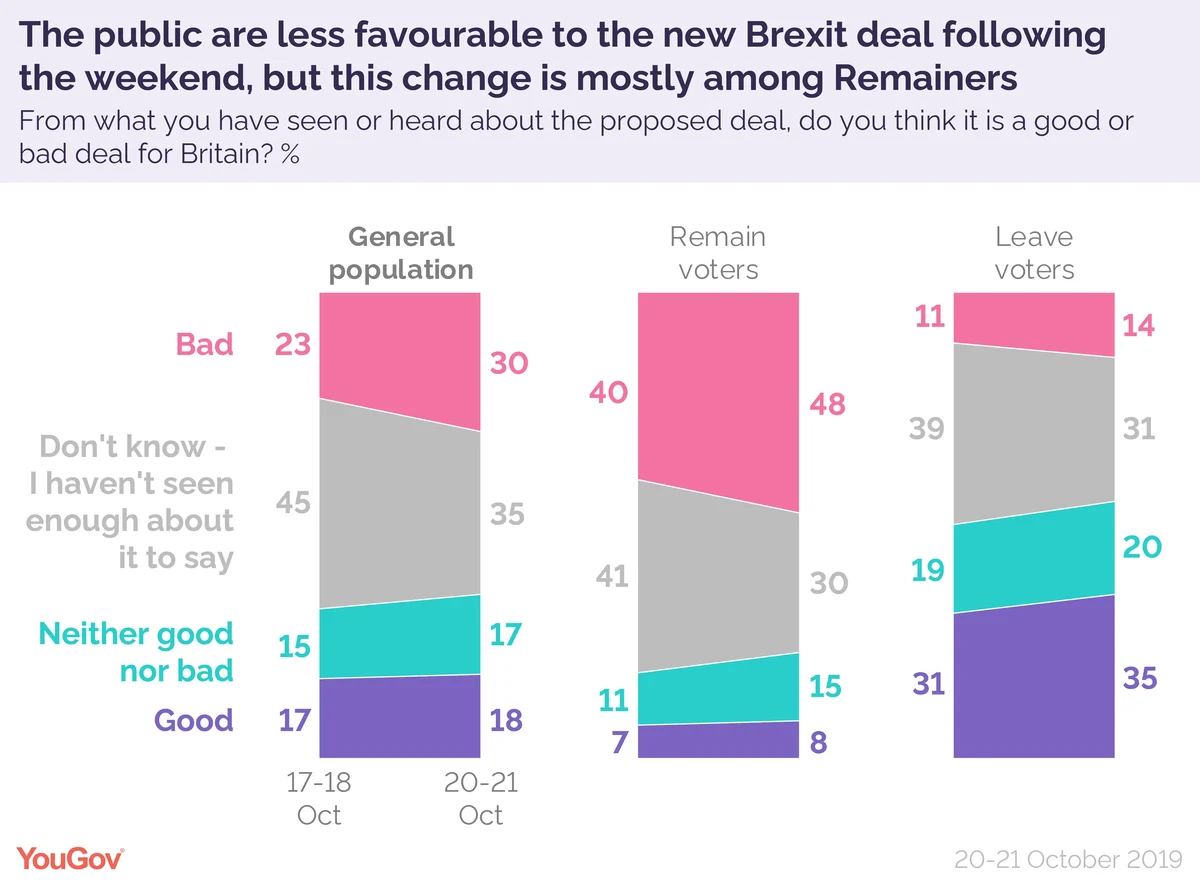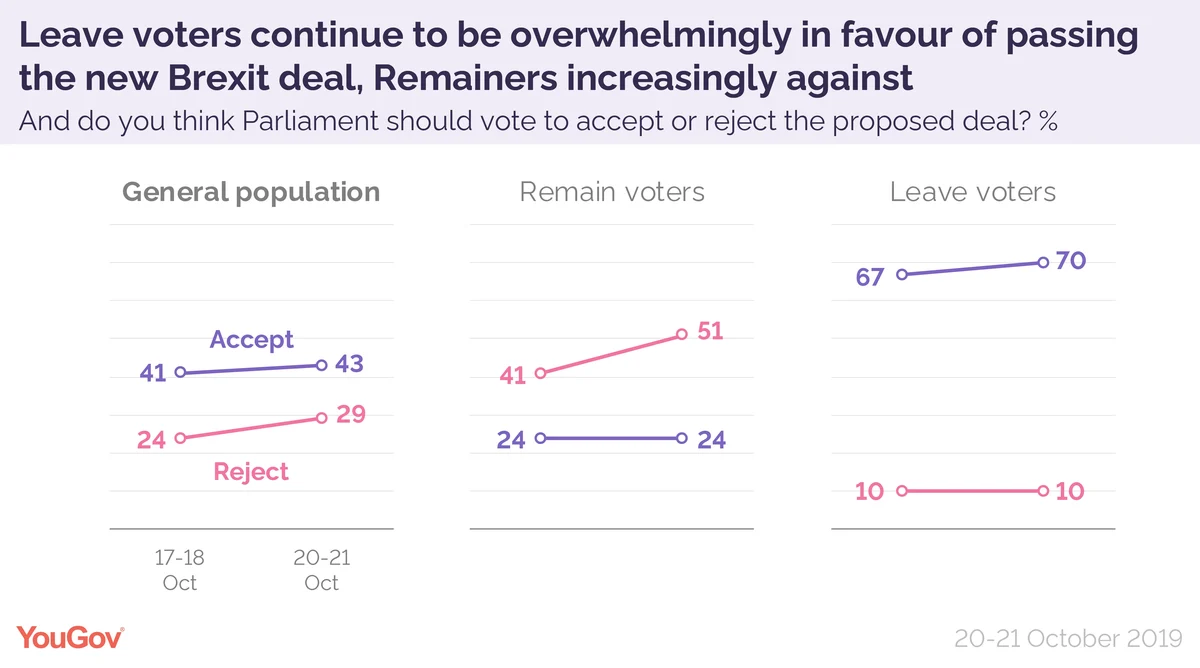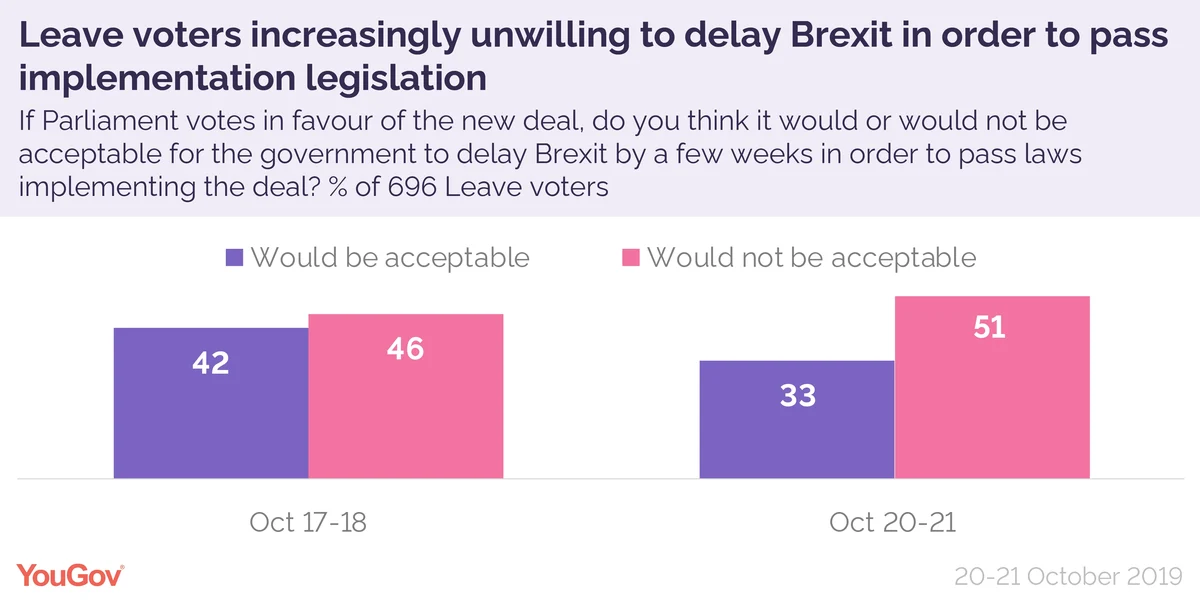Leave voters are turning against extending the Brexit deadline to allow for implementation legislation to be passed
With Parliament frustrating Boris Johnson’s plans to have MPs vote on his Brexit deal over the weekend, Britain now faces yet another wait for resolution.
We can see that public attitudes towards the Brexit deal has shifted slightly. What change has occurred is negative, but may not bother the Prime Minister unduly as it mainly comes from those with an anti-Brexit stance.
There has been a seven percentage point increase in the proportion of Brits who think Johnson has negotiated a bad deal, from 23% at the end of last week to 30% now.
This shift seems to have occurred primarily among Remain voters, however. While the proportion of Remain voters with a negative view of the deal has increased from 40% to 48%, among Leave voters it has only risen a modest three points from 11% to 14%.

The proportion of people who believe Johnson’s efforts have resulted in a good deal has remained largely static (18%, from 17% last week). Likewise, the proportion of Britons who think the deal is neither good nor bad is essentially unchanged, at 17% from 15%.
One in three Britons (35%) still don’t know enough about the deal to form a view (down from 45%).
There has likewise been a small increase in the proportion of people who think MPs should vote to reject the deal, from 24% to 29%. These Britons continue to be outnumbered by the 43% who want MPs to pass the deal (up from 41%).
Leave voters continue to overwhelmingly want the deal passed, by 70% to 10%. Among Remain voters the number who want MPs to block the deal has risen from 41% to 51%, with the number in favour of MPs accepting the deal has held firm at 24%.

One notable shift in opinion is among Leave voters’ attitudes to extending the Brexit deadline. Where last week they were relatively split, with 42% thinking a delay would be ok and 46% saying it would not, opinion has subsequently diverged with 51% of Leave voters now refusing to countenance a delay compared to only 33% who would accept one. This could be in response to the manoeuvrings in Parliament that have seen the vote on the deal further delayed.
At the same time Remainers have become more willing to accept a delay (from 53% to 65%), although given their general opposition to the deal this is could simply reflect a desire to postpone Brexit for as long as possible.

Photo: Getty







